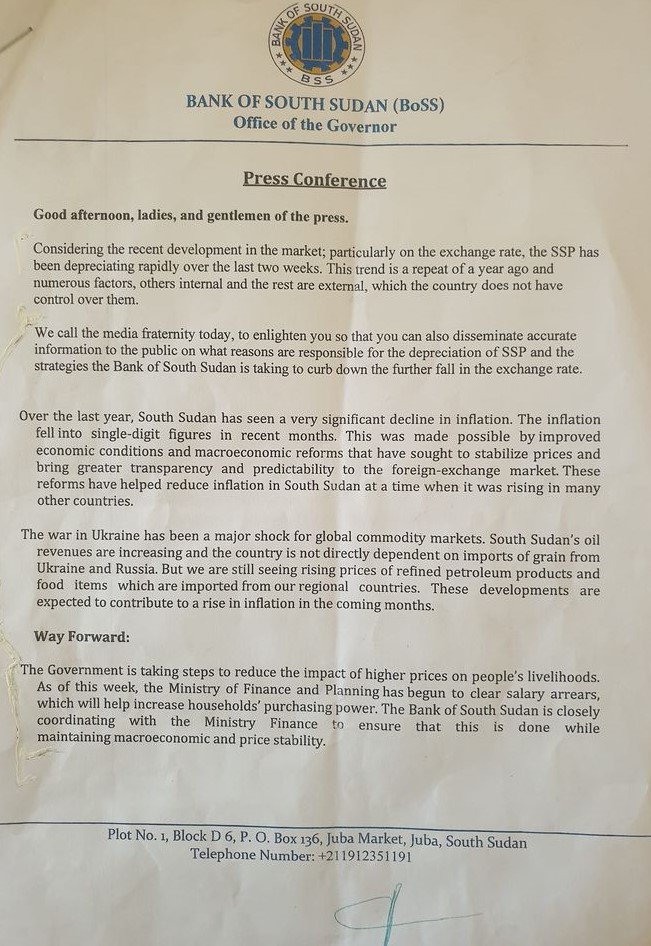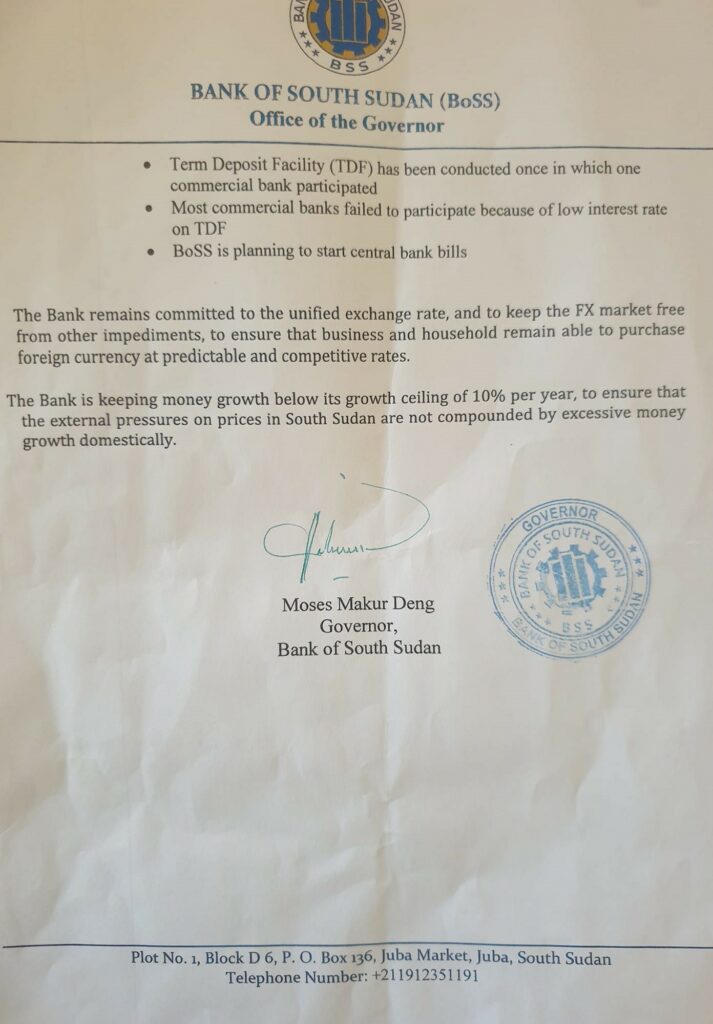
Bundles of South Sudanese currency and the US dollars. | File photo
The Central Bank has said the suspension of loans to South Sudan by IMF and the World Bank, among other factors, is to blame for depreciation of the pounds.
The state financial institution made the statement in a press conference in Juba Friday.
According to a press statement signed by the bank governor, the International Monetary Fund and the World Bank took the decision after the country failed to meet certain conditions the global financial institutions set for the acquisition of further loans.
“One of the possible reasons for the recent depreciation of the SSP is the suspension of loans to South Sudan by IMF and WB because of unmet conditions,” said the statement.
BoSS did not however, go into details on the alleged unmet conditions.
The statement further cited other factors weakening the pounds as speculations by market dealers, the ongoing payment of civil servants’ arrears and too many public holidays since last year.
The public holiday, according to the Bank. affected the bank’s schedule for forex auctions to set-off the parallel market through the commercial banks and forex bureaus.
The official went on to say the war in Ukraine and the increase in currency outside developing countries by 13 percent have aggravated the situation.
Apparently, a dollar sells at five hundred in the parallel mark or otherwise black market.
Deng stated that the financial institution is increasing oil production and putting strict measures on a Memorandum of Understanding between the banks, Ministry of Petroleum and the Central Bank regarding oil receipts to improve transparency in collecting the revenues.
Another measure taken, he said, is keeping money below it’s growth ceiling of 10 percent to ensure external pressures on prices in the country are not compounded by excessive money growth domestically.
Meanwhile, in a separate statement, Moses Makur appealed to the public to change their consumption patterns to locally available food commodities after speculations that the war in Ukraine has worsened the economic crisis in the country.
“What we want to advice the public is that food prices increased due to the Ukraine-Russia war, but what is good for South Sudan is that the number of people eating wheat is minimal, but we want to advice the public to change their pattern of consumption,” said Moses Makur Deng the Bank’s Governor.
The Ukrainian access to Black Sea ports have been blocked since Russia sent thousands of troops into Ukraine on February, and millions of tonnes of grain, mainly wheat are reported to be stuck in stores in the country.
Commenting on the narrative, Makur said the wheat scarcity will not affect South Sudan, since it is not a local food in the country.
He however called on the public to reduce bread consumption and resort to locally available food commodities.
“Most of South Sudanese don’t even know the color of this wheat, so you cannot jump to eat something you don’t have. Yaki you have been eating asida and kisra and casava, and you cannot jump to another category that you want to eat bread,
“So when things become tough, even if you’re eating bread, you can change the pattern to what is available because you cannot die as a result of lack of bread. We can even count the number of people who eat bread in South Sudan,” said the Bank official.


Support Eye Radio, the first independent radio broadcaster of news, information & entertainment in South Sudan.
Make a monthly or a one off contribution.
Copyright 2024. All rights reserved. Eye Radio is a product of Eye Media Limited.